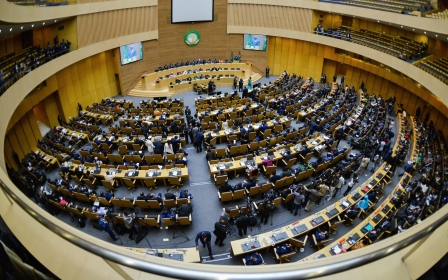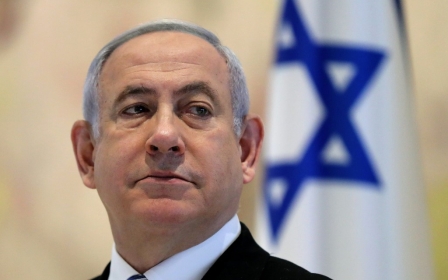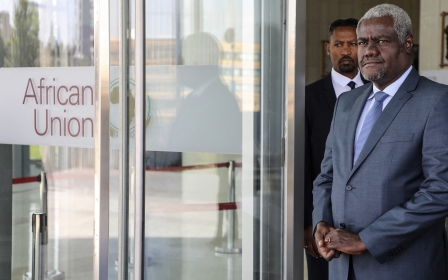Israeli diplomat removed from African Union summit

An Israeli observer delegation was removed on Saturday from the African Union summit being held in the Ethiopian capital, Addis Ababa.
A video shared online showed Sharon Bar-Li, the deputy director of the African Division at the Israeli foreign ministry, being escorted out at the opening ceremony of the two-day convention.
An AU official told AFP the individual who was "asked to leave" was not invited to attend the meeting, with a non-transferable invitation only issued to Aleli Admasu, Israel's ambassador to the African Union.
Israeli newspaper Haaretz, citing unnamed diplomatic officials, said Bar-Li had the proper authorisation to attend the summit and that discussions are being held to allow her to return.
New MEE newsletter: Jerusalem Dispatch
Sign up to get the latest insights and analysis on Israel-Palestine, alongside Turkey Unpacked and other MEE newsletters
The Israeli foreign ministry said the incident was driven by "extreme states" Algeria and South Africa, which had taken the AU "hostage" and were "controlled by Iran".
"We call on the African nations to stand against these actions, which harm the African Union as an organization and the continent as a whole," the ministry said in a statement.
Asked about Israel's accusations, South African President Cyril Ramaphosa's spokesman, Vincent Magwenya, told AFP: "They must substantiate their claim."
Algeria and the African Union did not immediately comment on the incident.
Israel obtained AU observer status in 2021 after 20 years of diplomatic efforts, in a decision that has created a rift in the 55-member bloc.
Israel had previously held the role in the Organisation of African Unity (OAU) but was frequently thwarted in its attempts to regain the position after the OAU was disbanded in 2002 and replaced by the AU.
Algeria spearheaded diplomatic efforts to rescind Israel's observer status last year. The pan-African bloc postponed holding a vote on a final decision until this year's summit.
The Palestinian Authority, which was granted AU observer status in 2013, has repeatedly urged African leaders to withdraw Israel's AU accreditation, denouncing its "apartheid regime".
According to the AU, there are 70 non-African embassies and non-governmental organisations accredited to the bloc.
Relations between Israel and a series of African countries have warmed over the past decade, particularly during Israeli Prime Minister Benjamin Netanyahu's time in office. Israel has diplomatic relations with 46 African countries.
Middle East Eye delivers independent and unrivalled coverage and analysis of the Middle East, North Africa and beyond. To learn more about republishing this content and the associated fees, please fill out this form. More about MEE can be found here.




